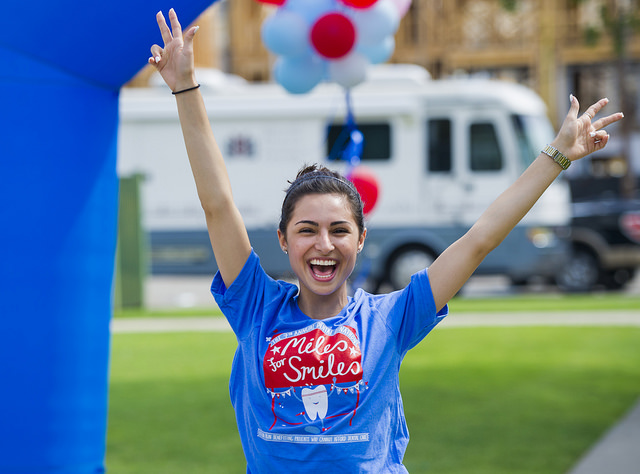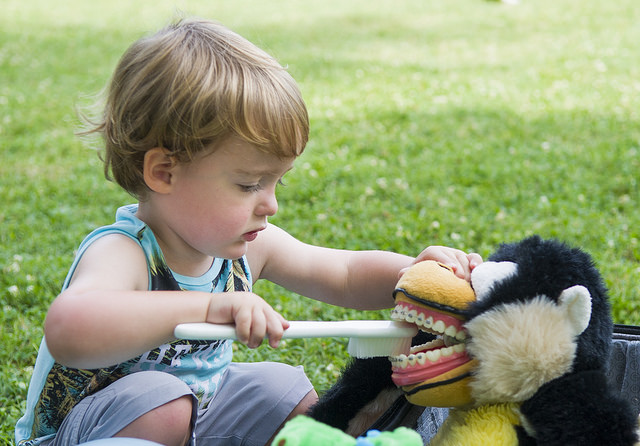Going the extra mile to help patients

When University of North Texas senior Leslie Powell learned about Miles for Smiles at a UNT Predental Association meeting, she joined the planning committee and got to work seeking potential sponsors.
Elsewhere in Dallas, University of Texas at Dallas predental club members teamed up to visit more than 100 dental offices over several months to deliver sponsorship packets and raise awareness of Miles for Smiles, founded by UTD students in 2009.
These efforts are for a valuable cause: raising money for the Social Services Dental Care Fund at Texas A&M University Baylor College of Dentistry. Miles for Smiles is an annual runathon designed to benefit dental patients in the Dallas area who are unable to afford their care. In all, more than 100 volunteers contributed to this year’s event, and 325 registered participants ran 475 miles. The total amount of funds raised will be announced soon.
“Dental care for the underserved is what really makes my heart happy,” says Powell, who, despite not yet studying dentistry, already has participated alongside dental volunteers at multiple outreach events and an Arlington, Texas, community clinic.
The scope of predental and dental student participation is as impressive as the thousands of dollars contributed by Miles for Smiles sponsors. For the first time, the event occurred near the TAMBCD campus, a plus for expanding student engagement. In addition to running laps, dental students provided patient screenings onsite in the mobile dental unit.

“We wanted to make this into a north Texas event, not just a UTD one,” explains Mehrad Sadeghpour, lead organizer and one of the event’s founders, who is now a third-year dental student at TAMBCD. “Coming together like this is a win-win for everybody.”
Undergraduate students from University of Texas at Arlington, Southern Methodist University and Texas Christian University also participated.
“The need among patients is huge,” says Leeanna Bartlett, director of social services. “If an expected filling turns into the need for a root canal and a crown, you potentially quadruple the cost. This fund helps people not have to choose between new tires and dental care.”
Helping patients complete their care also benefits the dental students assigned to treat them as part of their clinical requirements, Bartlett says.
Powell recently met an outreach-event patient who was in so much pain she couldn’t chew yet hadn’t been able to visit a dentist in seven years. “I want to help as much as I can,” she says. “I don’t know why people wouldn’t want to do this.”